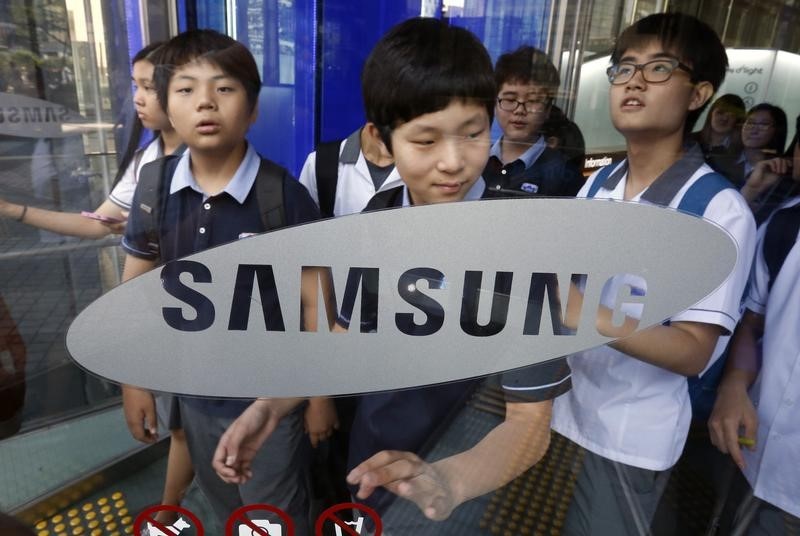By Se Young Lee
SEOUL (Reuters) - With a bid for Blackberry Ltd, South Korean tech giant Samsung Electronics may be signalling that it has run out of internal options to reverse its sliding profits and protect its shrinking lead in the global smartphone market.
Earnings from its mobile division, once a reliable cash cow, shrank rapidly last year, outsold by Apple Inc's iPhones in the premium segment and squeezed by the likes of Xiaomi Inc (XTC.UL) at the low end. Samsung tipped its 2014 profit to decline for the first time in three years.
Despite speculation that J.K. Shin, head of the mobile business, might have lost his job in December, Samsung gave Shin a vote of confidence, but analysts say he remains vulnerable if there is no meaningful recovery.
Shin, who has led the mobile business since 2009, oversaw the launch of the flagship Galaxy handsets that propelled Samsung to unseat Apple as the top smartphone maker and earn record profits in 2013. Three of his key lieutenants were relieved of their positions in December, which puts the focus ever more tightly on Shin.
Samsung's offer to buy BlackBerry could be an attempt to engineer such a recovery. Both companies have publicly denied such talks, but a person familiar with the matter and documents seen by Reuters indicate that the Korean firm offered up to $7.5 billion, in a bid to boost its presence in the corporate market, which is BlackBerry's chief strength.
While the Waterloo, Ontario-based company is no longer a top five smartphone maker, BlackBerry still holds considerable sway among enterprise clients for its strong security features - with U.S. President Barack Obama still using one of the company's devices after taking office.
Its patent portfolio also includes advanced encryption technologies that are highly valued, according to analysts, ever more so as tales of security breaches spook even regular phone users.
Though a deal of this magnitude would be a major departure from its conservative history, Samsung certainly has the firepower for big deals; at the end of the third quarter, it had 67 trillion won (40.79 billion pounds) worth of cash and equivalents.
ORGANIC LIMITS
Analysts say it may have no choice but to take big bets on acquisitions because it has no promising homegrown options to generate significant earnings momentum.
"Samsung recognises that it has reached its limit on organic growth, and the company is going to turn to acquisitions abroad to achieve a breakthrough," said Kim Sang-jo, an economics professor at Hansung University.
Though analysts expect healthy demand for memory chips and improvements in other components businesses to help stabilise earnings, those businesses can't make up for the sliding mobile profits.
The average forecast from a Thomson Reuters I/B/E/S survey of 52 analysts tips 2015 annual operating profit to fall for a second year to 24.2 trillion won.
Samsung's market share, according to Gartner research, slipped to 24.4 percent in the third quarter of 2014 from 32 percent a year earlier, and the launch of a range of new mid-to-low-end smartphones is unlikely to have arrested that decline in the final three months of the year.
Buying BlackBerry would create a new revenue stream and breathing room for Samsung's handset business. Access to its advanced technology would also help Samsung get a leg up on arch rival Apple, which is also trying to make inroads in the corporate market.
"If they can leverage the Samsung brand name and leverage BlackBerry's technology, that would be a very good combo," said Gene Cao, an analyst at Forrester Research.
Making a success of such a combination could prove more difficult than pulling off a deal. Samsung has never made an acquisition of this magnitude, and its hierarchical culture, typical for Korean companies, could sit uneasily with overseas staff.
Samsung's acquisition of U.S.-based computer maker AST Research in the mid-1990s ended in closure after a series of losses and a failure to retain research staff.
"Samsung does need to take these kinds of risks at some point, but the question is whether the company has the ability to successfully integrate the companies," said Chang Sea-jin, a business professor at Korea Advanced Institute of Science and Technology and author of "Sony Vs Samsung".
